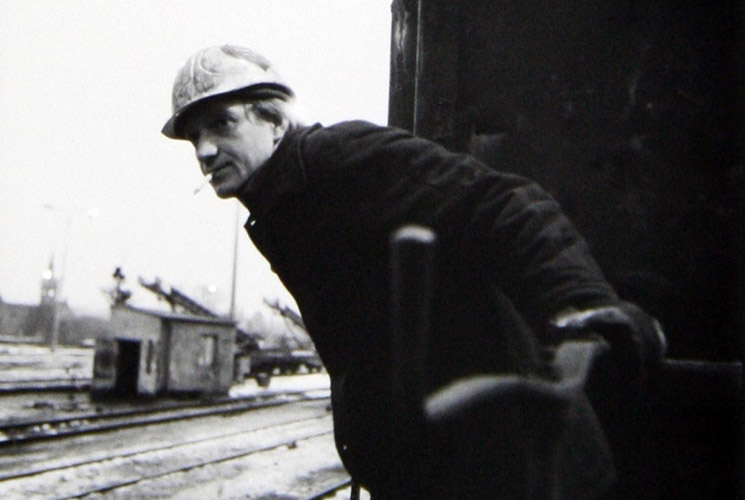12pm

event Details
To celebrate the 70th anniversary of the founding of the DEFA (Deutsche Film-AG) Studio in East Germany, the Goethe-Institut New Zealand presents in its Winter Film Series at the Auckland Art Gallery a film programme highlighting different themes and genres that were important to the DEFA. 70 years onwards the films give a glimpse into the diversity of film production in East Germany and offer a rare insight into the life, thinking and being of people behind the wall.
Film production at the DEFA Studio was divided into several studios, one of them being the Studio for Documentary Films in Berlin. Documentary film played an important role throughout the existence of the DEFA Studio and the GDR. From official state ordered propaganda films to informative films on diverse subjects matters for educational purposes, from intimate portrays of working people to atmospheric studies of working life and even experimental films, the films produced by the Studio were very diverse.
The Documentary Film Festival in Leipzig, established in 1955, was the biggest film festival in the GDR. It was a major stage for politically committed documentary films, especially from Third World countries and the socialist countries of that time. In the heyday of the festival, it was frequented by all of the world's important documentary filmmakers - including those from Western Europe.
Children Of Golzow: Some Day, When I go to school (Wenn Ich Erst Zur Schule Geh)
The children of Golzow, a little village near the Polish border, are six and seven years old and just finished preschool. They are excited about their first days in school in September 1961, only one month after the Berlin Wall went up.
An anthology of portraits from one of the longest-running documentary projects in film history, which has followed children who started school in August 1961 for almost five decades (the last part was released in 2007). Children of Golzow create a social panorama of growing up in the GDR. The stories of the people portrayed in this unique long-term chronicle illustrate both a part of GDR history and the history of DEFA documentary film.
Directed by Winfried Junge, 1961. Runtime 13 mis. German with English subtitles
Shunters (Rangierer)
Day and night, in all kinds of weather, workers hook and unhook railway cars in the largest goods-and-shunting station in the former GDR: Dresden-Friedrichstadt. Filmed with an hand held camera in direct atmospheric images, the film offers a glimpse into the physically-demanding and dangerous precision work of experienced shunters. An impressive portrait of the dignity of the working man.
Directed by Jürgen Böttcher, 1984. Runtime 22 mins.
Slatan Dudow: a film essay about a Marxist artist / Slatan Dudow – Ein Film Essay Über Einen Marxistischen Künstler)
This portrait of filmmaker Slatan Dudow (1903–1963) follows his life and work in exile, painting a detailed picture of the Marxist artist. Dudow was famous for his proletarian films of the 1930s such as Who Owns the World (1932), which was banned by the Nazis, and Soap Bubbles (1934), which he finished in French exile. The documentary features extracts from Dudow’s films.
Directed by Volker Koepp, 1974. Runtime 29 mins. German with English subtitles
Sweep it up (Kehraus)
Leipzig is in a period of change. The uproar of the autumn 1989 is followed by the hectic electoral campaign in Spring 1990. Nightly conversations with street sweepers are dominated by feelings of anxiety and apprehension and broken self-confidence, but there is also a keen awareness of the change in social climate following the political unification in the GDR. Despite their lack of illusions, the street sweepers have a clear perception of their surroundings and for them only one certainty prevails: there will always be dirt.
This film is an example of a 'Wende-flick', a film made around the time of the end of the GDR. These films acutely capture the changes in society, convey the thoughts and feelings of people in a disappearing state. Authentic documents of times of political and social change.
Directed by Gerd Kroske, 1989. Runtime 30 mins. German with English subtitles
- Date
- Location
- Auditorium, lower ground level
- Cost
- Free